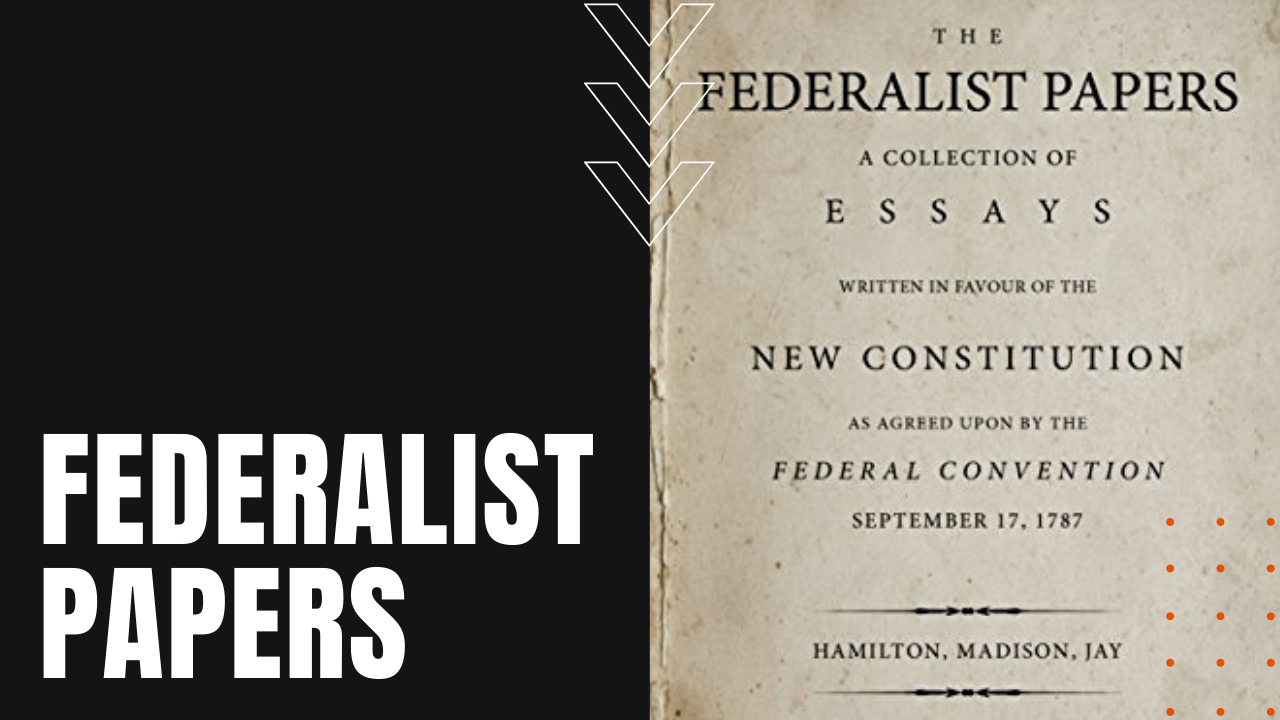Federalist Papers: Foundational Essays By Hamilton, Madison, and Jay

After the United States declared independence from Great Britain, the Articles of Confederation granted Congress power to engage in foreign policy, while maintaining an army and coining money, but the newly-formed centralized government lacked full authority over the individual states, including the inability to levy taxes or regulate commerce, which crippled the nation’s ability to pay her war debts.
Such deficiencies led to the Constitutional Convention of 1787, in turn producing the U.S. Constitution, which immediately caused furious debate between the Federalists, who favored ratification of the Constitution as written, and the Antifederalists, who opposed the creation of a strong central government.
Federalist Papers
Antifederalist opposition was strongest in New York, leading New York lawyer and statesman, Alexander Hamilton, to team up with New Yorker John Jay and Virginian James Madison, penning 85 essays in support of the Constitution.
To bypass any charges of betraying the Continental Convention’s confidentiality rules, Hamilton used the pen name Publius, after the general who helped found the Roman Republic, submitting essay 1 for publication in the Independent Journal on October 27th, 1787, where he raised the question of
“whether societies of men are really capable or not of establishing good government from reflection and choice, or whether they are forever destined to depend for their political constitutions on accident and force.”
Alexander Hamilton (Pen name: Publius)
Who Wrote the Federalist Papers?
Jay wrote the next four essays, until he was forced to drop out due to an attack of rheumatism, later penning one more essay, which paled in comparison to Madison’s 29 and Hamilton’s staggering 51.
In the Federalist Papers, the three patriots argued that without a centralized government, the United States would not be strong enough to compete on a world stage or quell home-grown insurrections like Shays’ Rebellion.
Federalist 10
Federalist 10 would become the most influential essay of all, where Madison argued against French political philosopher Montesquieu’s belief that true democracy was only feasible for small states. Other essays emphasized the weakness inherent in the Articles of Confederation, while Hamilton wrote 14 essays on the importance of taxation, followed by 20 essays explaining the need for checks and balances between the three branches of government.
“If men were angels, no government would be necessary,” Madison wrote in Federalist 51. “If angels were to govern men, neither external nor internal controls on government would be necessary.”
While the Federalist Papers saw little circulation outside of New York at the time of their publication, they also failed to sway many New York voters from their Antifederalist bent. Even so, in July of 1788, a slim majority of New York delegates voted in favor of the Constitution, on the condition that further amendments would follow in the Bill of Rights, making the Federalist Papers, a unique insight into the thinking of the American forefathers.
